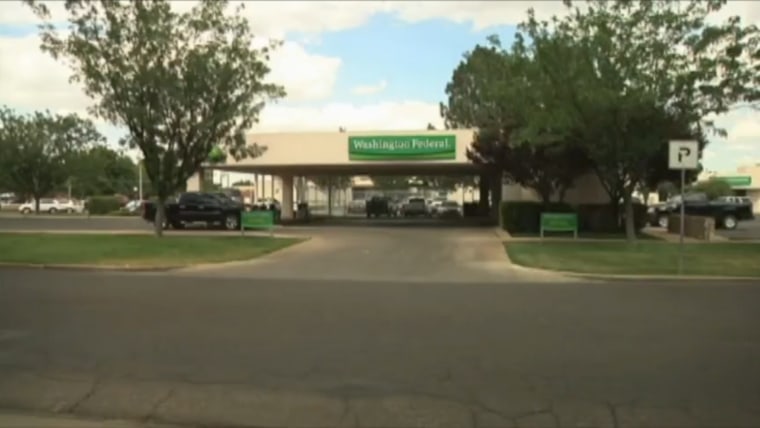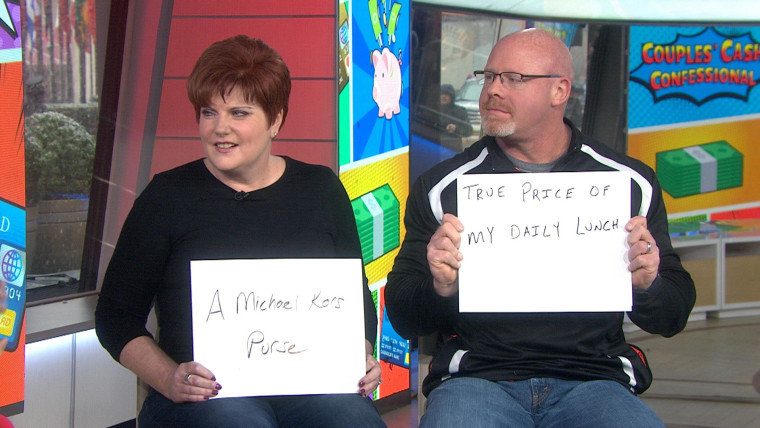What Happens If A Bank Teller Gives Me Extra Money
It sounds like a dream: Checking your bank balance to find it higher, much higher, than it should be. But it can — and does — happen. American consumers have seen bank mistakes in their favor for thousands and even hundreds of thousands of dollars.
"I felt like I was in a Monopoly moment," Leslie Holland told NBC about opening a statement from her brokerage account to see $23,000 that wasn't hers. "Like getting the card that says bank error in your favor: Collect $200."

Can You Keep It?
"You do have that moment of 'Oh my God, I won the lottery,'" said Holland, a marketing executive in Louisville, Kentucky. She didn't call her bank immediately. "I was walking around in windfall shock. You think about 'Can I keep it?'"
Mike Lieberman had the same thought after the sale of his Brooklyn apartment in 2014. After he signed over his proceeds to a visibly tired teller, he noticed the deposit slip showed a mistake in his favor — to the tune of $700,000.
"It's weird," he told NBC News. "Like in a movie when you see something happens to a person and a million things run through their mind in a split second. I looked at it [and thought] 'Holy cr*p, this is really not right. Can I keep it, can I spend it, can I invest it and give it back before anyone notices?' This all goes through your head really fast."
Industry insiders insist that while mistakes do happen, they are very few compared to the billions of successful transactions carried out every day.
"We conduct billions of transactions on a daily basis that are correct on both sides," said Doug Johnson, senior vice president for payments and cybersecurity policy at the American Bankers Association. But "there's always the potential for human error."
Here's the Bad News
And when mistakes are made, "'Don't keep it,' is the firm advice," Johnson said. "Eventually, the bank will come back to the customer. First they'll reverse the transaction but also potentially generate a police report after effective research, meaning the bank will contact the customer … and ask the logical questions: Did they notice that it was inadvertently deposited, why didn't they alert the bank, why didn't they return the funds. It creates a whole confluence of events that are not attractive."
One Georgia teen learned this the hard way. After spending $30,000 in his bank account that didn't belong to him, the young man earned a 10-year sentence, according to local news reports. A teller had deposited a check from a client with the same last name into the teen's account; he spent most of the funds on a BMW.

Lieberman, a former neuroscientist, speculated on how a person might make such a bad decision. The same part of the brain that gives us a rush when, say, we win a hand of cards, kicks in when we confront a scenario like unexpected money, Lieberman suggested. The limbic system is like the rewards circuitry. "There's a lot of dopamine signaling ... your heart rate goes up, your pupils dilate, you start sweating. That's when you make bad decisions. A lot of this is evolutionary response."
The pre-frontal cortex, which controls reasoning and judgment, is one of the last parts of the brain to fully develop.
"It takes training and learning and life experience" to not let that quick rush override your judgment, said Lieberman. "I'm fortunate that I didn't do something stupid." After his split-second deliberations, Lieberman pointed out the $700,000 mistake to the teller.
Holland pointed out her bank's error, too. "At the end of the day this isn't my money and I kept visualizing a little old lady who's missing $23,000. I'm glad my mother taught me right from wrong," she said.
How to Avoid the Dilemma
To avoid such situations, keep a close eye on your accounts.
"Manage your balance yourself in addition to what your bank is doing," Johnson said. Online banking may have made it easy to throw out the old fashioned check registers, but he uses his to reconcile his account to the penny, "even though I only write a check to the woman who takes care of our cats every two months." Software is also available to double check the bank's figures. And at the teller line, look at the deposit slip as confirmation and verify it is the amount intended. Also, Johnson said, double check remote deposits made with phones.
"It's really important in this world to protect yourself and to take responsibility even though we largely depend on financial institutions to do that for us," Johnson said.
Still not convinced? Consider this: "Back to my cybersecurity paranoia, some measures assist customers in protecting from unauthorized transactions on the other side," he said. "You can definitely play a major role in the first line of defense."
Because even if you're not in a hurry to report that big deposit, we would all want to know right away if money's going out that shouldn't.
What Happens If A Bank Teller Gives Me Extra Money
Source: https://www.nbcnews.com/business/personal-finance/bank-error-your-favor-can-you-keep-cash-n735316
Posted by: chamblisswaregs.blogspot.com

0 Response to "What Happens If A Bank Teller Gives Me Extra Money"
Post a Comment